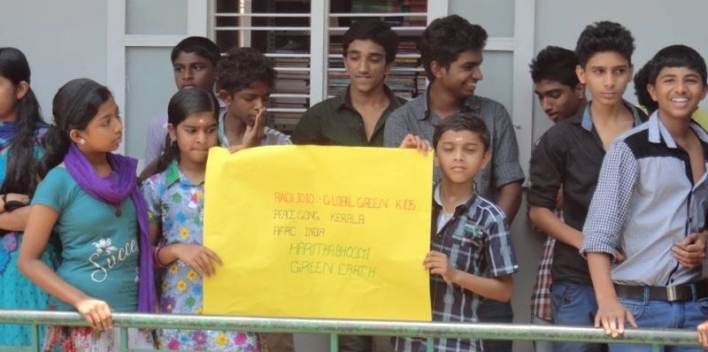
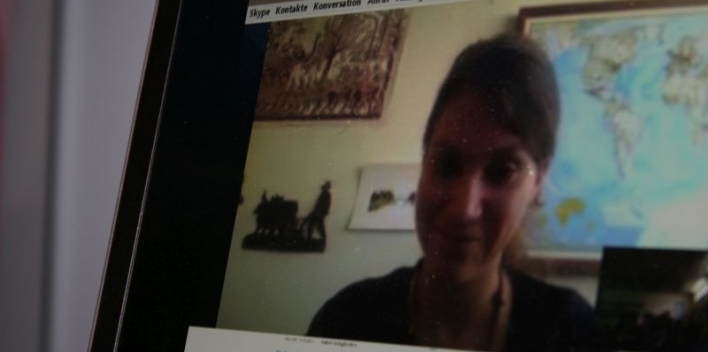
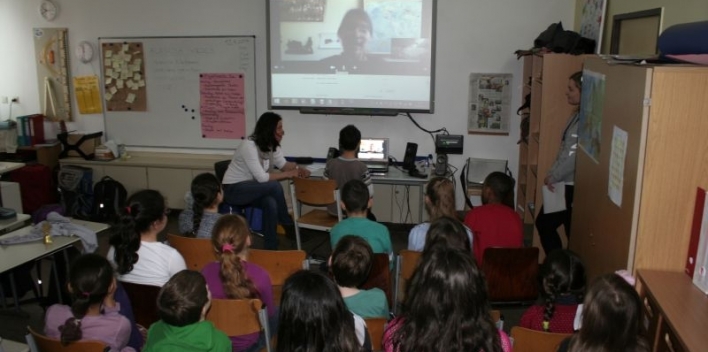
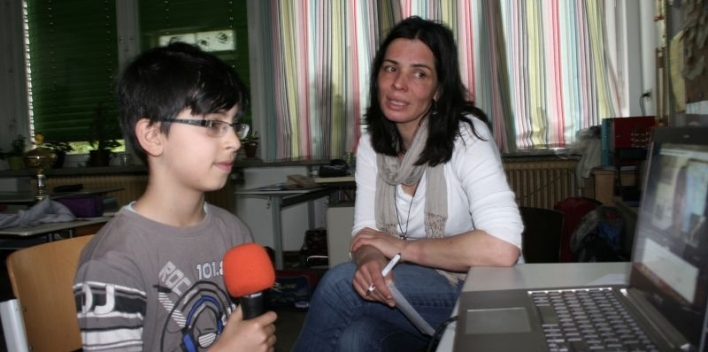
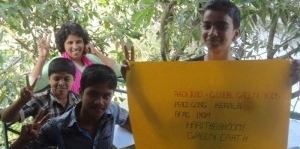
The Food and Agriculture Organisation of the Unites Nations tries to watch that as many people as possible have enough food and also get good nutritions.
Alashiya explained why still so many people worldwide do starve.
There are many reasons – for example, because of a lack of transport networks or because difficult climate conditions in countries of the Global South.
Also important: Girls and women rights. Not everywhere in the world girls and boys are considered equal. That means girls don’t have the rights to go to school or women don’t have the rigths to own land and so they can not grow or buy food.
Another reason for starvation is that quite a lot of food in developing countries is lost by the fact that it is not properly stored. Many people don’t even have refridgerators.
So better storage sytems to make food last longer need to be developed.
The students also learned about the importance of environmemtal education. People need to pay attention to nature, not to waste water or pollute it and keep the forests healthy.
The Global Green kids wanted to know, what children can do about it – Alashiyas answer: ‘Waste as little food as possible, take only as much food you want to really eat. Because, the less food we waste, the less natural resources we consume to produce food that is not eaten. This protects the environment.’
Two of the questions to Alashiya were contributed by the partners of Anna Lindh students – the children of AFRC INDIA and PEACE GONG. The Indian kids wanted to know how they can protect the environment in their home region Kerala and what students from developed countries can do to reduce poverty.
Listen to Alashiya’s anwers and get inspired by her ideas how to make the world a better place!
Alashiya Gordes is Consultant for Climate Smart Agriculture and the Youth and United Nations Global Alliance (YUNGA) at FAO. She is working in the field of environmental education, especially with children and adolescents.

Thank you Alashiya for sharing your knowledge, for your child friendly answers and the time you spent with the Global Green Kids!
The interview was part of a common project of Global Green Kids and AFRC INDIA and PEACE GONG on ‘sustainable agriculture’. It was held in German and English language. For our partners and all children who do not understand German, we produced a version with English voice-over.


















